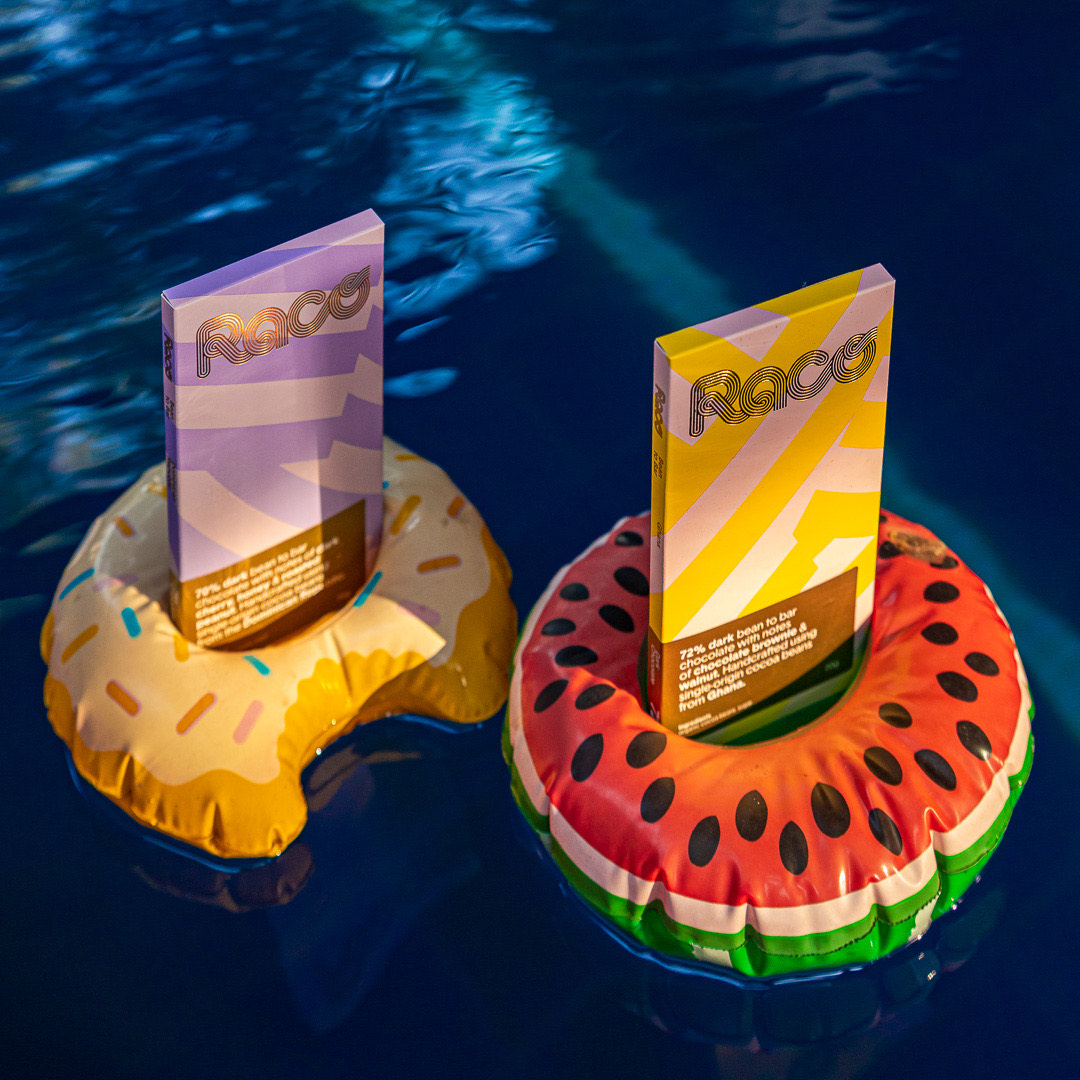Pakistanis have a profound passion for food
It is undeniable that Pakistanis have a profound passion for food. Our culinary journey begins at a young age, savouring homemade delights prepared by our mothers, and continues through our formative years, exploring the vibrant flavours of street food.
In the absence of diverse recreational activities, dining out at restaurants with loved ones has become an integral part of our culture, evolving into a cherished tradition for celebrating special occasions and creating lasting memories.
This passion has translated into a rapidly growing food industry in Pakistan. Post covid, people started being more concerned about the quality, freshness, and hygiene of food, resulting in an increasing demand for home-based food businesses.
Major key growth drivers in increasing demand have been the rise of food delivery apps and social media platforms.
The basic requirement to start a food business is a passion for cooking and serving delectable food. It is usually perceived that starting a home-based food business requires a considerable amount of investment.
However, this perception has changed with working kitchens at home, basic ingredients and utensils, a mobile phone with a camera to click on what you cook, and social media platforms to post.
Just a little cash in hand and above-average skills, and you’re the next foodpreneur. Additionally, word-of-mouth publicity helps a good deal for home-based food entrepreneurs.
We tend to stick with what we have heard; know and trust, opting for familiar food instead of venturing into untested territory. However, numerous challenges, like lack of business acumen and marketing skills, are faced by such businesses.
Usually, the cooking hands behind such brands are women in their later years. They excel in the kitchen but are generally not equipped with social media marketing skills and design aids. These become hurdles in obtaining customers and making a name.
Eventually, a lot of home-based businesses do not sustain long and end up shutting down. Photography is a crucial element in the food industry, as it significantly influences customer purchasing decisions.
Subpar visual representation can deter potential customers from engaging with a brand, regardless of the actual quality and taste of the food. Conversely, high-quality visual marketing can entice customers to place an initial order, even if the food’s taste does not entirely live up to the visual promise.
The proliferation of social media platforms as marketing tools has revolutionised the business landscape, transforming the way entrepreneurs promote and grow their ventures in the modern era.
Today, social media marketing is a skill that requires proper training and learning. Previously, home-based food businesses leveraged social media platforms like Facebook and Instagram to reach customers at no cost.
However, recent studies indicate that the organic reach of these platforms has significantly declined, from 2.5% to 1.5%. In simpler terms, a post on a Facebook or Instagram account with 1000 followers will now only be visible to approximately 150 followers by default.
This reduction, combined with limited marketing expertise and budget constraints, has resulted in a substantial decline in orders and sales for many businesses in this low-margin industry.
Influencers have significantly boosted businesses by promoting brand names, building trust, and increasing popularity and demand. Many home-based food entrepreneurs find Facebook groups invaluable for marketing, networking, and accessing resources.
These groups help with customer acquisition, delivery services, packaging materials, and more, creating a supportive community for entrepreneurs. Most groups allow free postings, though some charge a small fee. Event sponsorship also helps businesses showcase their products directly to group members.
Food quality is essential for a business’s sustainability. While social media and influencer marketing can drive initial sales, consistent quality ensures customer retention. Upgrading packaging, and delivery systems, and investing in skilled delivery personnel is crucial for maintaining high standards and encouraging repeat orders.
Many home-based food businesses start strong but falter due to inconsistent taste and quality. Investing in precision tools like measuring scales, timers, and thermometers helps maintain uniformity.
Additionally, in Pakistan, few home-based food businesses register their brands or obtain food quality licenses, often due to a lack of knowledge and confidence in their business’s long-term success.
Nevertheless, registration and licensing with the relevant authorities, such as the Federal Board of Revenue (FBR) and local chamber of commerce to obtain necessary licenses and permits is highly essential to sustain a business as well as secure the customer’s trust and run a business in the long run.
The need for training programmes for small business owners is also vital. When food entrepreneurs learn the ropes about correctly marketing their brand on social media and have access to the right guidance and resources, it completely changes the game for them.
However, efforts are currently being made on a small scale. It is highly recommended that more focused short courses, training sessions, and skill development courses, such as product photography, be introduced for entrepreneurs.
For home-based food businesses, the major target to achieve initially is to create significant recognition for their brand name while maintaining enough sales to keep it going.
Once achieved, they hustle to take it to the next level and have a proper outlet for their brand. It can be started from a kiosk or food cart and can reach a restaurant one day too.
The surge in demand for home-cooked and hygienic food in Pakistan has created a highly favourable outlook for home-based food entrepreneurs.
To succeed in this industry, entrepreneurs must possess a strong work ethic, unwavering determination, innovative thinking, and an unrelenting commitment to quality, which will enable them to capitalise on this promising trend and achieve long-term success.
We spoke with some trusted food brands about their journeys to understand their initial thoughts before starting their businesses, their perceived shortcomings, their aspirations, and their future growth plans.
Homemade Wholesome
Urooj Saeed, also known as the ‘Brownie Queen,’ owns Homemade Wholesome, a home-based brand that serves premium brownies, bread, granola, hot chocolate mixes, and much more.
She said, “In my nine years of experience, I have learned that the key factors in becoming a customer’s favourite are focusing on quality, being consistent, building a friendly relationship with customers, word-of-mouth recommendations, not being afraid to experiment and fail, and continuously learning and growing. I advise every upcoming business owner to focus on quality and build a loyal customer base. With dedication and hard work, anyone can build a successful brand without breaking the bank.”

Snax Time
Ayesha Wajid runs Snax Time, a 10-year-old home-based frozen food business in Pakistan. About her journey, she says, “My brand is built on the foundation of quality, freshness, and customer satisfaction.
My lack of social media skills made it difficult for me to sustain myself. However, word-of-mouth recommendations helped to gain trust.
I believe that leveraging social media platforms, investing in food safety and hygiene certifications, and developing unique value propositions for customers can help a business prosper.”

Cupncakes
Rabia Maqsood launched Cupsncakes 10 years ago when there wasn’t much concept of online brands. Reflecting on her journey, she stated, “After running my business for six years. I did a short course of merely three days from IBA on entrepreneurship and digital marketing.
To my surprise, I noticed a visible difference in handling my pages (social media platforms), resulting in greater sales and reach. I firmly believe that these courses help a lot in broadening your horizons.
Now, I have also got my business and bank account registered with an NTN, which helped me to legalise my money, pay taxes, get a better reputation for my brand, receive ease in the visa process as an NTN payer, and retrieve international payments. Also, the NTN number helps me get discounted rates from wholesale suppliers.”

Just Yum
Just Yum is a food brand that offers a palatably comforting Korean menu, owned by Mrs. Jawwad in her 60s. She shared her insights by stating, “Before starting a food business, aspiring entrepreneurs should learn and polish their cooking skills.
They should try to gather as many reviews as they can. By having people try their food and achieve maximum improvement. Since the food market is already saturated, another key point is to introduce unique and innovative dishes to stand out.
By introducing a Korean menu in Pakistan, our food has created a significant buzz. We’re going strong, and therefore, our future goal is to open a physical outlet. For this, we have already started saving the profits.”

Ottimo
Ottimo, which in Italian means ‘the optimum, the ultimate,’ was started by Mr. Ashar Hussain at the age of 69. He launched his high-end artisanal ice cream brand after retiring from a 20-year-long corporate career.
He shared, “My kids taught me about Facebook and Instagram. They took care of the product photography and wrote captions for me. Now, they have recently introduced AI to me, which these days is my helping hand in writing posts.
I considered registering my brand name, logo, and slogan when someone started copying them. However, I received a quote of 25,000 from a lawyer, which is too much for a small-scale business like mine.
Nevertheless, I am registered for income tax and get 4.5% of my income deducted for taxes. I will be partnering with someone to look after getting licenses and displaying my product at events, supermarkets, restaurants, etc.”

Raco Chocolate
Rabeeah Diwan, at the age of 26, runs Raco Chocolate. This young chocolatier shared, “The idea of starting a chocolate brand from home came to me during COVID. I experimented and delved into the world of bean-to-bar chocolate.
Initially, my main objective was to excel in making chocolates rather than marketing them, as I wasn’t ready to handle a big demand. Hence, my focus has always been on getting people to try it more than just seeing it around.
I have a few business owners in my family too, which helped me to get plenty of advice. I urge business owners to take risks and invest in their business as it helps in committing more to it.”










